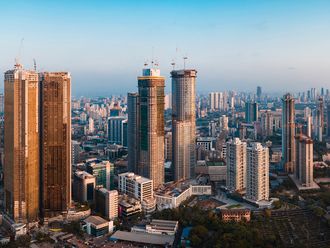
Initiatives by GCC states’ to develop AI sector are accelerating rapidly, and which should usher in significant changes in their economies.
In our March column, we highlighted the progress made and the need to localize and attract major companies to the AI space, especially given the GCC's substantial financial resources.
In just seven months, significant transformations have taken place, prompting the question in global circles: ‘Are GCC countries becoming a global hub for AI technologies?’
It is clear why this question is being asked, given the rapid developments in the region. Currently, the world’s largest chip manufacturing companies, like Taiwan’s TSMC and South Korea’s Samsung, dominate this space alongside the US and Israel.
UAE as chip manufacturing hubs
However, recent Gulf developments are positioning the region as a new center of technological influence. The ‘Wall Street Journal’ reported that a delegation from TSMC recently visited Abu Dhabi to explore building a $100 billion chip manufacturing complex, potentially in collaboration with Samsung. This represents a major shift that could position the UAE as a technological hub for the chip and AI industries, underscoring the significance of the scale of investment and interest from a leading global company.
In Dubai, the number of digital companies has reached 120,000, with investments amounting to $38 billion. This figure is expected to grow to $140 billion, as Dubai continues to attract tech firms, helped by its advanced infrastructure.
Saudi Arabia has made significant progress in the Global AI Index, climbing 17 positions to rank 14th globally, even surpassing many developed nations. This is attributed to the substantial investments made on advanced technologies and specifically in AI.
Some may ask whether this progress represents a mere transfer of foreign technology and expertise. However, it is not limited to the transfer process alone; there is a serious push to localize and develop such technologies domestically. This intention is evident in the changes being made to universities and higher learning institutes in GCC countries, leading to the establishment of dedicated AI institutions and new educational policies aimed at encouraging students to pursue applied sciences instead of the current focus on humanities.
Creating domestic talent pools
Moreover, more than 250,000 GCC students are now studying at universities around the world, with a focus on high-tech. A similar number are pursuing higher education within the GCC, where university programs have significantly advanced over the past decade, with several universities climbing in global rankings.
In this regard, the recent meeting of the Higher Committee for Future Technology and Digital Economy launched an initiative to train 5,000 citizens in future technologies over the next five years, preparing them for roles in tech companies.
It is clear from these initiatives that the current Gulf efforts are not limited to merely transferring technology, but are also focused on localizing and advancing such technologies, particularly AI. Most transactions in the Gulf countries are now carried out through smart technologies, which has led to skills development and progress in digital services.
The question of whether the GCC countries can become a global hub for AI technologies is well-founded. It is based on a solid technological and educational foundation, marking another significant step towards economic diversification. And ensuring that the GCC countries are active participants - and leaders - in this sector.













